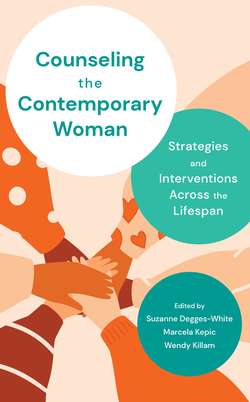Читать книгу Counseling the Contemporary Woman - Suzanne Degges-White - Страница 40
На сайте Литреса книга снята с продажи.
Authenticity
ОглавлениеAuthenticity is the capability to represent oneself fully, honestly, and truthfully within a relationship (Duffey & Somody, 2011; Jordan, 2018; Miller, 1986; Miller & Stiver, 1997). Authenticity serves to deepen a relationship if paired with self-awareness of one’s impact on others (Frey, 2013; Jordan, 2018)—statements should be made in a way that is honest, not hurtful or judgmental. Authentic statements are not based on impulse but rather on thoughtfulness. Two people in a relationship can have different opinions and views, yet both persons should be empowered to express themselves without fear of how it could affect their connection and relationship. For instance, two friends who have different opinions on cohabitation and marriage express their opinions openly without judging their friends’ beliefs or choices. Their friendship is bigger than one topic, and having different opinions is an opportunity for both friends to learn about a different outlook.
Nevertheless, it is difficult for individuals who have experienced a history of oppression, rejection, and marginalization to garner the trust to function authentically within a relationship (Duffey & Somody, 2011). Self-empathy facilitates authenticity; as individual’s develop self-compassion, they are empowered to accept themselves and present themselves vulnerably (i.e., authentically) without shame (Duffey & Somody, 2011). Therefore, the first step to being authentic with others is accepting oneself.
